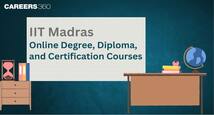- Introduction to C++
- What is C++?
- Program Paradigm
- ANSI/ISO vs Standard C++
- C++ Syntax and Structure
- C++ Language Fundamentals
- Benefits of C++ over C
- C vs C++
- Procedural vs OOP
- Compiling a C Program in C++
- Undefined Behavior in C and C++
- Void * in C vs C++
- Name Mangling
- Use of Extern C in C++ Programming
- Structures in C vs Class in C++
- C++ vs Java
- Similarities between C++ and Java
- Exception Handling in C++ vs Java
- Default Virtual Behavior in C++ vs Java
- Floating Point Operations and Property of Associativity in C, C++, and Java
Introduction to C++ Programming
Quick Facts
| particular | details | |||
|---|---|---|---|---|
|
Medium of instructions
English
|
Mode of learning
Self study
|
Mode of Delivery
Video and Text Based
|
Course overview
The Introduction to C++ Programming Online Course is a 3-month long course that explores all concepts of C++ programming language and their relevant industrial applications. The course available on the Skill-Lync learning platform is suitable for both freshers and experienced computer programmers.
Through the Introduction to C++ Programming Certification Course, learners will receive an in-depth understanding of programming in C++ and object-oriented programming concepts. The course includes a one-on-one demonstration that learners can request before enrolling.
After successfully completing the Introduction to C++ Programming Live Course, learners will be rewarded with a course certificate. The course will be delivered through expert lectures and academic materials along with technical projects and industry-specific training.
The highlights
- Merit certificate
- 3 months duration
- Course videos
- Expert instructors
- Project portfolio page
- Flexible course fees
- One-one zoom support sessions
- Group zoom support sessions
- Email and telephone support
- Course-specific forum group
- Industry oriented projects
- 1-on-1 demo session
- Course counselling
- Personalized hands-on support from expert engineers
Program offerings
- Merit certificate
- 3 months duration
- Individual video support
- Group video support
- Email support
- Forum support
- Telephone support
- Professional portfolio
- Technical projects
- 1-on-1 demo session
- Course counselling
Course and certificate fees
Introduction to C++ Programming Course Fee Structure
Description | Amount |
Introduction to C++ Programming - Basic | Rs. 40,000 |
certificate availability
Yes
certificate providing authority
Skill Lync
Who it is for
The Introduction to C++ Programming course can be opted by any student or graduate who wishes to learn C++ programming and coding skills.
What you will learn
After completing the Introduction to C++ Programming Classes, you will learn about the following topics:
- An introduction to programming through C++
- C, C++, and Java
- Fundamentals of C++
- Strings, arrays, and functions in C++
- Dynamic Memory Allocation
- Object-Oriented Programming
- OOPs using C++
- Keywords in C++
The syllabus
Week 1 - Introduction to C++
Week 2 - Environment Setup & Fundamentals in C++
- Environment Setup for CPP Programming
- Compiler setup
- Online compilers
- Eclipse/ Visual Studio Setup
- First Program
- Understanding compilation- Build Pipeline
- Preprocessing, Compiling, Assembling, and Linking
- C++ Basics
- Data Types and Modifiers
- Built-in Datatypes
- User-defined or Abstract Data Types
- Variables in C++
- Declaration and Scope of Variables
- Global Variables
- Local Variables
- Static Variables
- Extern Variables
- Auto Variables
- Operators in C++
- Arithmetic Operators
- Bitwise Operators
- Relational Operators
- Conditional Operators
- Sizeof Operators
- Assignment Operator
- Unary Operator
- Pre-Increment vs Post-increment Operators
- Loop Types in C++
- For
- While
- Do-while
- Decision Making in C++
- If
- else-if
- if-else-if
- nested-if
- switch
Week 3 - Strings and Arrays
- Strings in C++
- Arrays in C++
- Functions in C++
- Call by Value
- Call By Reference
- Inline Functions
- Function Pointers
- Pointer to Function
Week 4 - Pointers and References
- Pointers in C++
- References in C++
- File Handling in C++
- File Operations
- File Handling through C++ Class
- f-stream
- if-stream
- of-stream
Week 5 - DMA and OOPS Part 1
- Dynamic Memory Allocation
- malloc()
- calloc()
- realloc()
- free
- new
- delete
- malloc vs new
- free vs delete
- Object-Oriented Programming
- OOP’s Concepts - Briefing
- Class
- Default access specifier in a class
- Access Modifiers
- Constructor
- Destructor
- Assignment Operator
- Copy Constructor
- Default member functions in a class
- Object
Week 6 - OOPS Part 2
- Encapsulation
- Abstraction
- Message Passing
- Dynamic Binding
- Data Hiding
- Inheritance
- Use of Inheritance
- Modes of Inheritance
- Types of Inheritance
- Single Inheritance
- Multiple Inheritance
- Hierarchical Inheritance
- Multiple Inheritance
- Hybrid Inheritance
- Multipath Inheritance
- Diamond Problem
Week 7 - OOPS Part 3
- Polymorphism
- Compile Time Polymorphism
- Function Overloading
- Operator Overloading
- Runtime Polymorphism
- Function Overriding
- Virtual Keyword
- VTable
- Vptr- V Pointer
- Virtual Functions
- Abstract Class
- Pure Virtual Function
- Interface vs Abstract Class
Week 8 - Constructors and Destructors
- Constructors and Destructors
- Virtual constructor
- Virtual Destructor
- Virtual Copy Constructor
- Shallow Copy vs Deep Copy
- When does the compiler create default constructor and copy constructor?
- When do you write your own Copy constructor and Assignment Operator?
- Dangling Pointer
- Void Pointer and Opaque Pointer
- Null Pointer and Wild Pointer
- Private Constructor
- Private Destructor
- Copy Elision
- Explicit Keyword- Can constructors and Destructors be called explicitly?
Week 9 - Keywords in C++
- Static Keyword in C++
- Static Variables in a Function
- Static Variables in a Class
- Static Members of Class- Static Class Objects
- Static Member Functions in a Class
- Const keyword in C++
- Mutable Keyword in C++
- Friend Function and Friend Class in C++
- This Pointer in C++
- ‘this’ pointer
- Type of ‘this’ pointer
- delete ‘this
Week 10 - Type Casting
- Type Casting in C++
- Implicit cast
- Explicit cast
- dynamic_cast
- static_cast
- reinterpret_cast
- const_cast
- Member Initializer List in C++
- Use of Initializer Lists
- Cases where we use Member initializer lists
Week 11 - Exception Handling
- Exception Handling in C++
- Why do we need Exception Handling in C++
- Base Class and Derived Class Exception Handling
- Catch Block in C++
- Object Destruction
- Stack Unwinding in C++
- Templates in C++
- How do Templates work?
- Function Templates
- Class Templates
- Template Specialization
Week 12 - Multithreading
- Multithreading in C++
- Posix threads
- Std :: thread
- Inter-Process Communication
- What is IPC
- Various methods in IPC
- Smart pointers
- Use of Smart Pointers
- Types of Smart Pointers
- Auto pointer
- Unique pointer
- Shared pointer
- Weak pointer
Admission details
Follow the given steps to enroll in the Introduction to C++ Programming Live Course:
Step 1: Go to the official website by clicking on the URL given below -
https://skill-lync.com/computer-science-engineering-courses/introduction-c-programming
Step 2: Select the "Enroll Now" option provided on the course page.
Step 3: Choose the suitable payment package and unlock access by submitting your name, email id and phone number.
How it helps
The Introduction to C++ Programming Certification Benefits are listed below:
- The course will help learners understand the basic and advanced concepts of the C++ programming language with a stress on their industrial applications.
- Through the course, learners will get a detailed overview of the fundamentals of Object-Oriented Programming with C++ and their uses in major industries including automation, finance, and gaming.
FAQs
How much time is required to complete the Introduction to C++ Programming Live Course?
The Introduction to C++ Programming Online Course can be completed within a span of 3 months or 12 weeks.
Can graduates apply for the Introduction to C++ Programming course?
Yes, any graduates or students who are interested in a coding career can apply for the course.
Will learners get placement support after Introduction to C++ Programming Online Course completion?
No, learners are not provided with placement support by the Introduction to C++ Programming Course.
Does the Introduction to C++ Programming Live course provide demo sessions?
Yes, candidates can request one-on-one course demonstrations before joining the Introduction to C++ Programming Certification course.
Does the Introduction to C++ Programming course offer certification to learners?
Yes, all learners who complete the Introduction to C++ Programming Training course will receive course certification.


 Brochure
Brochure Enquire
Enquire










